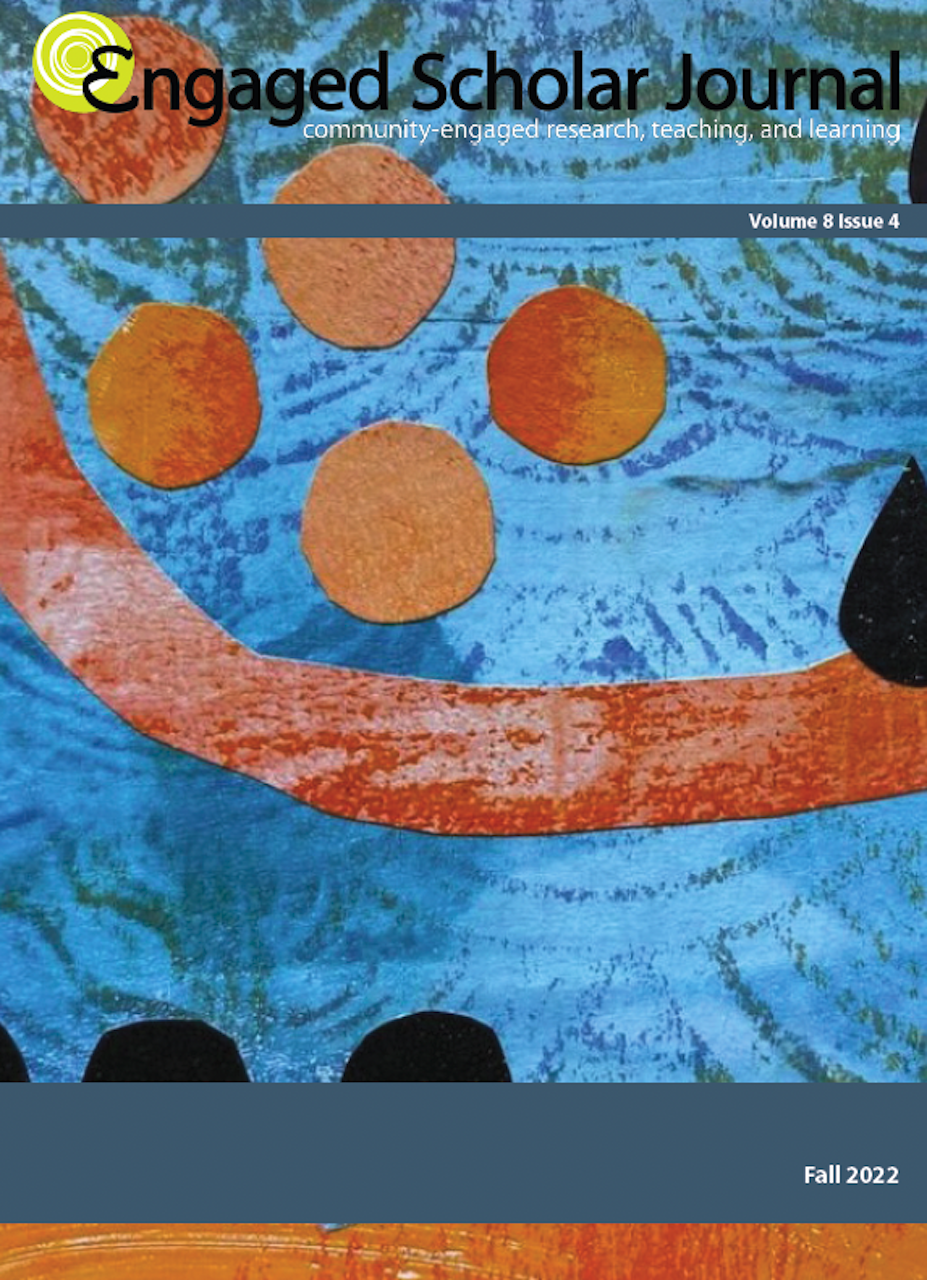Realizing the Promise of Disaggregated Data and Analytics for Social Justice Through Community Engagement and Intersectoral Research Partnerships
DOI:
https://doi.org/10.15402/esj.v8i4.70792Keywords:
Disaggregated data, Community engaged scholarship, partnerships, science policy, social justice, inequity, big dataAbstract
In Canada, community and policy leaders have issued urgent calls to collect, analyze, and mobilize disaggregated data to inform equity-oriented initiatives aimed at addressing systemic racism and gender inequity, as well as other social inequities. This essay presents critical reflections from a national Roundtable discussion regarding how meaningful community engagement within academia–community–government research collaborations offers the opportunity to harness disaggregated data and advanced analytics to centre and address the priorities of equity-deserving and sovereignty-seeking groups. Participants emphasized four key priorities: (1) Building equitable and engaged partnerships that centre community-driven priorities and address structural barriers to community engagement; (2) Co-creating ethical data governance policies and infrastructure to support community data ownership and access; (3) Stimulating innovation and pursuing community involvement to create contextualized, advanced analyses and effective visualizations of disaggregated data; and (4) Building the capacity of all partners to effectively contribute to partnership goals. Capacity building was viewed as a bridge across a diversity of lived and professional expertise, enabling intersectoral research teams to collaborate in culturally safe and respectful ways. Beyond identifying key structural barriers impeding the promise of disaggregated data, we present practical opportunities for innovation in community-engaged scholarship to address social justice challenges in Canada.
References
The Black Health Equity Working Group. (2021). Engagement, governance, access, and protection (EGAP): A data governance framework for health data collected from Black communities. https://blackhealthequity.ca/wp-content/uploads/2021/03/Report_EGAP_framework.pdf
British Columbia’s Office of the Human Rights Commissioner. (2020). Disaggregated demographic data collection in British Columbia: The Grandmother perspective. https://bchumanrights.ca/publications/datacollection/
The First Nations Information Governance Centre. (n.d.). The First Nations Principles of OCAP®. https://fnigc.ca/ocap-training/
Hoogeveen, D., Williams, A., Hussey, A., Western, S., & Gislason, M. K. (2021). Sex, mines, and pipelines: Examining ‘Gender-based Analysis Plus’ in Canadian impact assessment resource extraction policy. The Extractive Industries and Society, 8(3), 100921. https://doi.org/10.1016/j.exis.2021.100921
Kaida, A., Carter, A., Nicholson, V., Lemay, J., O’Brien, N., Greene, S., Tharao, W., Proulx-Boucher, K., Gormley, R., Benoit, A., Bernier, M., Thomas-Pavanel, J., Lewis, J., de Pokomandy, A., & Loutfy, M. on behalf of the CHIWOS Research Team. (2019). Hiring, training, and supporting peer research associates: Operationalizing community-based research principles within epidemiological studies by, with, and for women living with HIV. Harm Reduction Journal, 16. https://doi.org/10.1186/s12954-019-0309-3
Loutfy, M., de Pokomandy, A., Kennedy, V. L., Carter, A., O’Brien, N., Proulx-Boucher, K., Ding, E., Lewis, J., Nicholson, V., Beaver, K., Greene, S., Tharao, W., Benoit, A., Dubuc, D., Thomas-Pavanel, J., Sereda, P., Jabbari, S., Shurgold, J. H., Colley, G., … Team, C. R. (2017). Cohort profile: The Canadian HIV women’s sexual and reproductive health cohort study (CHIWOS). PloS One, 12(9), Article e0184708. https://doi.org/10.1371/journal.pone.0184708
Nelson, R. (2021). Developing evaluable principles for community-university partnerships. Journal of Community Engagement and Scholarship, 14(1). https://jces.ua.edu/articles/10.54656/JDGK9182
Published
How to Cite
Issue
Section
License
Authors who publish with this journal agree to the following terms:
- Authors retain copyright and grant the journal right of first publication with the work simultaneously licensed under a Creative Commons Attribution License CC BY 4.0 that allows others to share the work with an acknowledgement of the work's authorship and initial publication in this journal.
- Authors are able to enter separate, additional contractual agreements for the non-exclusive distribution of the journal's published version of the work (e.g., post it to an institutional repository or publish it in a book), with an acknowledgement of its initial publication in this journal.
- Authors are permitted to post their work online (e.g., in an institutional repository or on their website) after the publication of their work in the Engaged Scholar Journal.
- Please note that while every opportunity will be taken to ensure author participation in the editing process, due to time constraints final copyediting changes may be made before publication to ensure APA adherence throughout all submissions.




